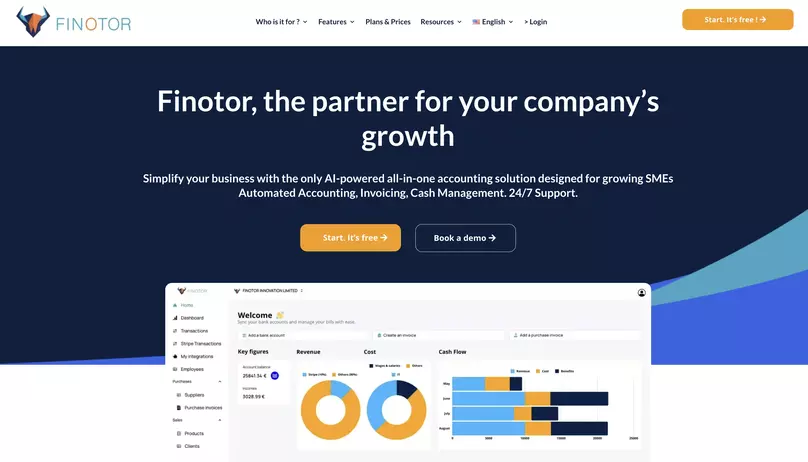Contents
Understanding Financial Statements
For any business, financial statements are the compass that guides its financial course. A thorough comprehension of these documents is not just a matter of regulatory compliance but a crucial element for informed decision-making and strategic planning. Crafting a financial statement is an art that balances precision and insight, providing a snapshot of the business’s financial health. In this guide, we’ll walk you through the essentials of understanding financial statements as a stepping stone towards creating your own.
The Role of Financial Statements in Business Management
Financial statements serve as a report card for a company, showcasing the results of its operations and financial activities over time. They are indispensable for managers, investors, and creditors to evaluate the company’s performance, liquidity, and growth potential. By analyzing trends in income, expenses, and profitability, stakeholders can make informed decisions to steer the company towards sustainable growth. With the integration of Finotor’s all-in-one financial management solution, this process becomes more streamlined than ever, offering real-time insights and foresight into financial outcomes.
Key Components of Financial Statements
The backbone of any financial statement lies in its key components: the balance sheet, income statement, and cash flow statement. Each plays a unique role in providing stakeholders with a comprehensive view of the company’s financial standing. The balance sheet reflects the company’s assets, liabilities, and shareholders’ equity at a specific point in time, providing a glimpse into what the company owns and owes. The income statement, or profit and loss statement, records revenues, expenses, gains, and losses over a period, illustrating the company’s operational efficiency. For a deep dive into crafting an income statement, consider the insights from Harvard Business School Online. The cash flow statement, meanwhile, sheds light on the inflow and outflow of cash, highlighting the company’s liquidity. For further guidance on preparing comprehensive financial statements for small businesses, FreshBooks offers valuable resources.
Interpreting Financial Data for Strategic Planning
Interpreting financial data goes beyond mere number crunching; it involves extracting actionable insights that can drive strategic business decisions. By analyzing financial statements, businesses can identify cost-cutting opportunities, uncover revenue-enhancing strategies, and ensure capital is allocated efficiently. It is this interpretation of data that sets the stage for future growth and stability. Finotor enhances this analytical process by employing artificial intelligence and machine learning algorithms to distill complex financial data into clear, strategic insights, enabling businesses to focus on their core activities and future planning.
As we delve deeper into the aspects of financial statement preparation and analysis, remember that these documents are not just retrospective reports but forward-looking tools that, when utilized effectively, can chart the course for a business’s success. With the right technology and understanding, like that provided by Finotor, your financial statements can become a beacon for strategic navigation in the complex waters of business finance.
Preparing Your Documentation
When crafting an effective financial statement, the preparation of your documentation is a foundational step that can determine the accuracy and reliability of your financial insights. Below we explore the critical processes of gathering financial records, ensuring data accuracy, and how Finotor’s cutting-edge platform can tremendously simplify this indispensable phase.
Gathering Essential Financial Records
The collection of financial records is a pivotal task that sets the stage for a comprehensive overview of your business’s financial health. It involves compiling all relevant financial data, which includes bank statements, invoices, receipts, payroll records, and transaction logs. These documents serve as the building blocks for financial reporting and analysis. Ensuring that every piece of data is accounted for prevents discrepancies and helps in painting an accurate picture of the company’s financial performance.
Ensuring Accuracy of Financial Data
Accuracy in financial data is non-negotiable. Even minor errors can lead to significant misjudgments about the financial condition of a business. Therefore, it’s crucial to implement a system of double-checking and verification. This could mean reconciling bank statements with internal records, cross-verifying receipts with expense reports, and regularly updating financial logs. An accurate record-keeping system assists stakeholders in making informed decisions and facilitates a detailed financial statement analysis.
Using Finotor for Efficient Document Management
Efficient document management is the keystone to a streamlined financial statement preparation process. Finotor offers a robust solution that not only houses documentation centrally but also ensures data integrity through its advanced features. With direct integration capabilities with banking systems and financial platforms like Stripe and WooCommerce, Finotor simplifies the reconciliation of bank statements. The platform’s AI-powered tools help in sorting, organizing, and storing financial documents, making them easily accessible for future reference. Moreover, Finotor’s user-friendly interface means that your financial documentation is always in order, up-to-date, and ready for analysis. Discover how Finotor can transform your financial document management by visiting https://finotor.com.
Utilizing Technology for Financial Management
In the digital age, leveraging technology is key to gaining competitive advantage in financial management. Finotor’s advanced tools are designed to harness the power of artificial intelligence and machine learning to transform the financial operations of your business. Let’s explore how technology can revolutionize your approach to managing finances.
Automating Finance with Artificial Intelligence
The advent of artificial intelligence (AI) has opened new frontiers in financial automation. With Finotor’s AI-powered solutions, tasks that previously consumed hours can now be completed with unparalleled speed and accuracy. AI-driven algorithms can handle everything from transaction categorization to fraud detection, allowing your team to focus on critical decision-making. Automating routine financial processes not only boosts efficiency but also reduces the risk of human error, ensuring that your financial data remains pristine.
Integrating with Banking and Payment Platforms
Seamless integration with banking and payment platforms is essential for modern businesses. Finotor simplifies the complex landscape of digital payments by offering robust integration capabilities with systems like Stripe and WooCommerce. This integration allows for real-time tracking of transactions and easier reconciliation of bank statements. By connecting your financial processes with trusted payment platforms, Finotor ensures that you have a holistic view of your finances, paving the way for more informed decision-making and strategic planning.
Leveraging Machine Learning for Data Analysis
Machine learning (ML) takes data analysis to the next level by predicting future trends based on historical data. Finotor utilizes ML to provide in-depth insights into your financial health. From cash flow projections to expenditure analysis, the platform’s predictive capabilities allow you to anticipate and prepare for future financial scenarios. By incorporating machine learning into your financial toolbox, you can decode complex data patterns and unlock actionable insights that can drive your business growth. Moreover, visualizing financial statements becomes effortless with tools like Tableau, further empowering you to distill complex data into understandable and actionable information.
Finalizing and Analyzing Your Financial Statement
Creating and analyzing financial statements is a crucial step in managing your business’s financial health. With Finotor, this process is not only simplified but also empowered by innovative technology, ensuring you get the most insightful assessments of your financial data. This part of our guide will walk you through the final stages of crafting a comprehensive financial statement and the strategies for improving your financial health.
Using Finotor to Streamline Financial Statement Creation
The creation of financial statements can be a complex and time-consuming process. However, Finotor simplifies this task by offering an all-in-one solution for business management. With Finotor, you can easily generate balance sheets, income statements, and cash flow statements. Its user-friendly interface allows you to seamlessly input data, and its automation tools eliminate the risk of human error. Templates and guides are available to assist you in setting up your statements correctly, ensuring that you cover all necessary financial aspects without feeling overwhelmed.
Understanding the Impact of Financial Results
Once your financial statements are ready, understanding their impact is critical to making informed business decisions. Finotor’s analytical tools help you interpret key metrics such as profitability, liquidity, and solvency. By analyzing trends and comparing your performance with industry benchmarks, you can gain a clearer picture of your company’s financial health. For a deeper dive into how to make sense of your financial results, educational resources are available to explain each element of your financial statement and its significance to your business growth.
Strategies for Improving Financial Health with Finotor
With a finalized financial statement, it’s time to look ahead. Finotor not only helps you understand where your business stands but also assists you in planning for a more prosperous future. By utilizing Finotor’s advanced data analysis, you can identify areas where costs can be reduced, efficiency can be increased, and revenue can be maximized. Its AI-driven forecasting tools allow you to set realistic financial goals and create actionable strategies to achieve them. Whether you’re looking to streamline operations or explore new market opportunities, Finotor provides the insights and tools necessary to enhance your financial strategy and drive your business forward.
Ultimately, Finotor is more than just a software for managing your financial statements; it’s a strategic partner in your business’s growth. By leveraging Finotor’s comprehensive suite of financial tools, you can ensure that your financial statements are not only accurate and compliant but also instrumental in shaping a more successful business path.









